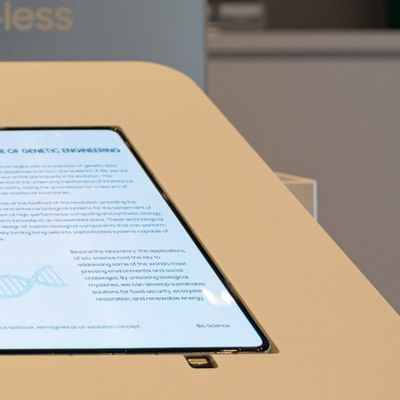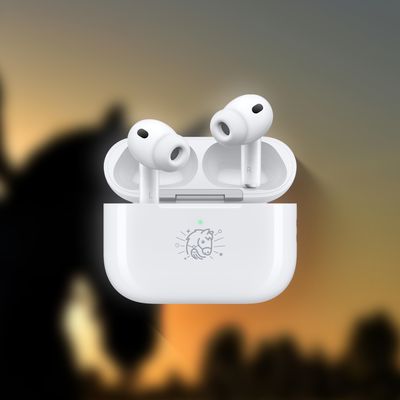Apple Aiming to Increase Music Library Matching Limit to 100,000 Tracks 'Before the End of the Year'
Just ahead of the launch of Apple Music in late June, Apple's senior vice president of Internet Software and Services Eddy Cue took to Twitter to reveal that Apple was "working to" increase the limit for iTunes Match libraries and Apple Music's similar scan-and-match feature from the current 25,000 tracks to 100,000 tracks for iOS 9.

The arrival of iOS 9 last month did not come with a corresponding increase for the library matching limits, and users in our forums and elsewhere have been wondering when the increase will be rolled out or if there has been a change in plans.
In an effort to answer that question, MacRumors asked Cue for an update on the limit increase, and he tells us Apple is "definitely working on it" and that he expects it will be released "before the end of the year."
Apple's $25/year iTunes Match service and Apple Music's matching feature allow users to add their own songs that are not available from the iTunes Store catalog to the cloud, making them available on other devices using the same Apple ID. The services scan a user's music library to determine which tracks are already available in the iTunes Store, automatically making those available in the user's library. Only those tracks that are not matched to the iTunes Store catalog are then uploaded to the cloud, saving time and bandwidth.
The scan-and-match functionality has been limited to libraries of 25,000 tracks since iTunes Match debuted in 2011, although tracks purchased from the iTunes Store do not count toward this limit. Users with larger music libraries have had to use workarounds such as splitting their tracks into two iTunes libraries in order to take advantage of the matching services, but with the impending increase to a 100,000-track limit, many of these users will no longer need to resort to these workarounds.
Popular Stories
Apple is not expected to release a standard iPhone 18 model this year, according to a growing number of reports that suggest the company is planning a significant change to its long-standing annual iPhone launch cycle.
Despite the immense success of the iPhone 17 in 2025, the iPhone 18 is not expected to arrive until the spring of 2027, leaving the iPhone 17 in the lineup as the latest...
Language learning app Duolingo has apparently been using the iPhone's Live Activity feature to display ads on the Lock Screen and the Dynamic Island, which violates Apple's design guidelines.
According to multiple reports on Reddit, the Duolingo app has been displaying an ad for a "Super offer," which is Duolingo's paid subscription option.
Apple's guidelines for Live Activity state that...
Apple is planning to release a low-cost MacBook in 2026, which will apparently compete with more affordable Chromebooks and Windows PCs. Apple's most affordable Mac right now is the $999 MacBook Air, and the upcoming low-cost MacBook is expected to be cheaper. Here's what we know about the low-cost MacBook so far.
Size
Rumors suggest the low-cost MacBook will have a display that's around 13 ...
Govee today introduced three new HomeKit-compatible lighting products, including the Govee Floor Lamp 3, the Govee Ceiling Light Ultra, and the Govee Sky Ceiling Light.
The Govee Floor Lamp 3 is the successor to the Floor Lamp 2, and it offers Matter integration with the option to connect to HomeKit. The Floor Lamp 3 offers an upgraded LuminBlend+ lighting system that can reproduce 281...
Now that the calendar has flipped over into January, steep discounts on popular Apple products have become more rare after the holidays. However, if you didn't get a new pair of AirPods recently and are looking for a model on sale, Amazon does have a few solid second-best prices this week.
Note: MacRumors is an affiliate partner with some of these vendors. When you click a link and make a...
Belkin today announced a range of new charging and connectivity accessories at CES 2026, expanding its portfolio of products aimed at Apple device users.
UltraCharge Pro Power Bank 10K with Magnetic Ring
The lineup includes new Qi2 and Qi2.2 wireless chargers, magnetic power banks, a high-capacity laptop battery, and USB-C productivity accessories, with an emphasis on higher charging...
CES 2026 has just provided a first glimpse of the folding display technology that Apple is expected to use in its upcoming foldable iPhone. At the event, Samsung Display briefly showcased its new crease-less foldable OLED panel beside a Galaxy Z Fold 7, and according to SamMobile, which saw the test booth before it was abruptly removed, the new panel "has no crease at all" in comparison.
The ...
Apple has designed a limited edition version of the AirPods Pro 3 to celebrate Lunar New Year, and customers in select countries can purchase them starting today. The Year of the Horse Special Edition AirPods Pro 3 feature a unique horse emoji character that's otherwise unavailable.
Customers in China, Hong Kong, Taiwan, Malaysia, and Singapore are able to buy the AirPods, and they'll be...
























